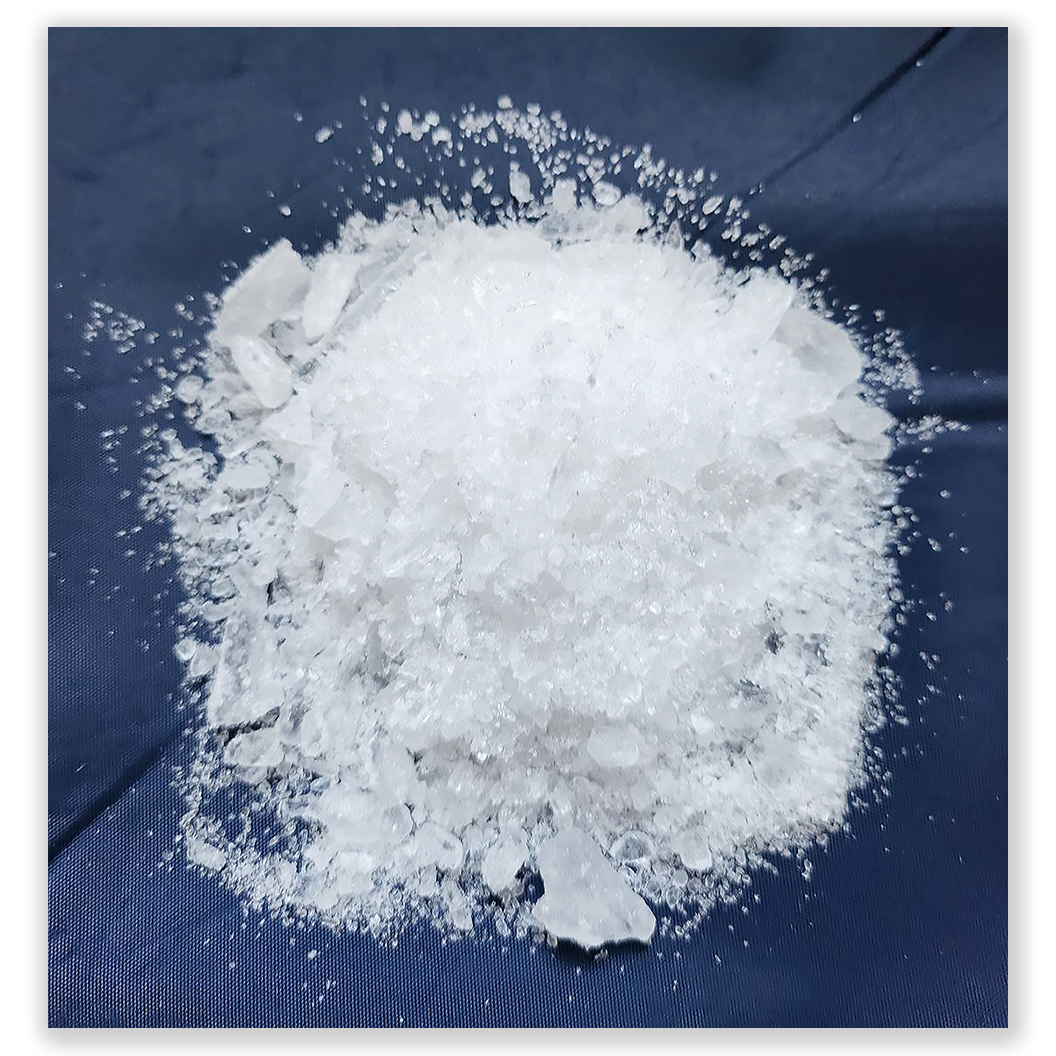We post news and comment on federal criminal justice issues, focused primarily on trial and post-conviction matters, legislative initiatives, and sentencing issues.

MYTHBUSTERS
I might fairly be accused of trotting out the old “Mythbusters” trope every few months or so when I have nothing else to write about. But it’s not so.
 A loyal reader, himself a skilled jailhouse lawyer, urged me several months ago to revisit some of inmates’ most cherished rumors and myths. He was feeling a little beaten down by well-intended questions about how the Loper Bright Enterprises v. Raimondo decision invalidating the Chevron deference doctrine must mean that people with medium and high recidivism scores will now be able to earn First Step Act credits. (Hint: Loper Bright will affect FSA credits not at all).
A loyal reader, himself a skilled jailhouse lawyer, urged me several months ago to revisit some of inmates’ most cherished rumors and myths. He was feeling a little beaten down by well-intended questions about how the Loper Bright Enterprises v. Raimondo decision invalidating the Chevron deference doctrine must mean that people with medium and high recidivism scores will now be able to earn First Step Act credits. (Hint: Loper Bright will affect FSA credits not at all).
Others are demanding to know how President Joe Biden’s signing of H.R. 3019 into law would do the same.
It has been a busy summer, however, and although I am getting the usual number of emails asking why the BOP won’t renew the elderly offender home detention program and when the new meth law takes effect, it took this email yesterday to force my hand:
PATRICIA PRISONER on 8/15/2024 at 10:32:58 AM wrote
i have a question concerning the FSA..IN NOVEMBER WHEN THE LAWS COME INTO EFFECT..WILL THE PPL WITH HIGH OR MEDIUM RECIDIVISM BE ABLE TO USE THEIR TIME CREDITS??DO ANYTHING CHANGE FOR THOSE WHO HAVE PROGRAMED BUT WONT BE ABLE TO CHANGE THEIR STATUS TO A LOW???
Aarrgh! Another FSA credit question.
So here we go, by the numbers:
(1) What will happen on November 1st?
On November 1st, two things will happen. First, Sentencing Guidelines amendments proposed last spring will go into effect, unless Congress blocks them (which it will not).
 The second is that BOP Director Colette Peters will ride up to the front gate of every BOP institution and give one lucky inmate a ride home on the back of her BOP Central Office unicorn.
The second is that BOP Director Colette Peters will ride up to the front gate of every BOP institution and give one lucky inmate a ride home on the back of her BOP Central Office unicorn.
Only one of the foregoing is true. And it ain’t the unicorn.
Unfortunately, the traditional November 1st date for the effectiveness of sentencing guidelines amendments has attained an almost mythical status on the inmate grapevine commonly known as “inmate.com.” But let’s remember this (covered in high school government class, probably on a day you skipped): The sentencing guidelines, like all government regulations, are NOT laws. Guidelines are written by the Sentencing Commission pursuant to authority granted by Congress. They are advisory only. A judge does not have to follow them. And this year, not a single Guidelines amendment will retroactively apply to people already sentenced. So, the amendments going into effect on November 1 have absolutely no effect on federal prisoners.
Congress has not passed any changes to the federal criminal laws this year. With only about 35 more days of legislative sessions this year for the House and 39 for the Senate (and with elections for all representatives and one-third of the senators), there is no chance that Congress will do anything to benefit federal prisoners.
The misperception that crime is rising is one of the bogeymen of this election cycle. No legislator’s going to vote for something that may benefit maybe 50,000 federal prisoners but gives his or her opponent an opening to argue that the incumbent voted to let dangerous criminals go free. As the politicians say, it’s bad optics.
(2) The BOP is not arbitrarily denying FSA credits to high and medium recidivism inmates.
Under 18 USC 3624(g)(1), in order to use FSA credits, a prisoner must have a “minimum” or “low” recidivism risk or “ha[ve] shown through the periodic risk reassessments a demonstrated recidivism risk reduction.” It is possible for a medium or high recidivism inmate to earn the right to spend FSA credits, but the statute (18 USC 3624(g)(1)(D)(ii)) is very specific about how difficult earning such a right would be.
 The important point is that any changes to the FSA credit program – that lets prisoners earn credits to shorten sentences and permit more halfway house/home confinement – that would permit people with high and medium recidivism scores to use their credits, both the House and the Senate would have to pass an amended First Step Act law and the President would have to sign it. It simply is not going to happen this year.
The important point is that any changes to the FSA credit program – that lets prisoners earn credits to shorten sentences and permit more halfway house/home confinement – that would permit people with high and medium recidivism scores to use their credits, both the House and the Senate would have to pass an amended First Step Act law and the President would have to sign it. It simply is not going to happen this year.
And while we’re on it, why won’t the BOP let people with 18 USC § 924(c) gun charges have FSA credits? Simply enough, it’s because Congress deliberately excluded § 924(c) convictions from eligibility. The BOP’s got no power to change that.
(3) H.R. 3019 was indeed signed by the President, but it is the Federal Prison Oversight Act and has nothing to do with FSA credits.
In the 5½ years since the First Step Act was passed, no one has mounted any serious effort to change the FSA credits. Congress seems content that 63 different categories of offenses (comprising about half of all federal inmates) remain ineligible for FSA credits.
The FPOA is legislation that holds great promise for increasing BOP accountability, but it has nothing to do with the First Step Act in general or FSA credits in particular.
(4) Elderly Offender Home Detention Program has come and gone.
I still get complaints that the BOP is denying people who are 60 years old home confinement at their two-thirds date.
Of course it is. The two-thirds home confinement for 60+ people was the Elderly Offender Home Detention Program, authorized by the First Step Act. It was a pilot program, and was authorized to run until September 30, 2023. When it expired, I wrote about it.
The important point is that Congress set the expiration date. The BOP has no right to waive the expiration date or to extend it. It’s up to Congress, and Congress hasn’t done a thing about it.
(5) When does the new meth law go into effect?
 What new meth law? About 18 months ago, a single district court in Mississippi ruled that the Guidelines enhancement for methamphetamine purity should not be applied because these days, just about all meth is high purity. The judge in question, however, was Carleton Reeves, who happens to be chairman of the Sentencing Commission, making the holding kind of a big deal.
What new meth law? About 18 months ago, a single district court in Mississippi ruled that the Guidelines enhancement for methamphetamine purity should not be applied because these days, just about all meth is high purity. The judge in question, however, was Carleton Reeves, who happens to be chairman of the Sentencing Commission, making the holding kind of a big deal.
The Guidelines enhancement is based on 21 USC § 841(b)(1)(A)(viii), which sets differing levels for pure meth and a “mixture… containing a detectable amount” of meth. Last June, the Commission released a study showing that meth purity is no longer a reasonable metric for enhancement. The Commission may yet take up the enhancement, although it has not yet committed to do so. However, no real change can be effected until Congress changes the law. Congress has given no indication it is interested in doing so.
(6) A Basic Government lesson
We should all understand that a “congress” runs for two years. We are in the 118th Congress right now. It ends on January 2, 2025, The 119th Congress begins on January 3, 2025, and ends on January 3, 2027.
When a Congress ends, any bill that is pending but not passed disappears. The 119th Congress starts with a clean slate. This means that any bill currently pending (like marijuana reform, the EQUAL Act, First Step Act changes) will die.
Whether any criminal justice reform legislation makes it through the 119th Congress has a lot to do with who controls the House and Senate and who will be sitting in the White House. If one party ends up controlling all of it (especially the Democrats), some of what has been stalled – such as the Cannabis Administration and Opportunity Act and EQUAL Act — may have a real shot.
– Thomas L. Root

